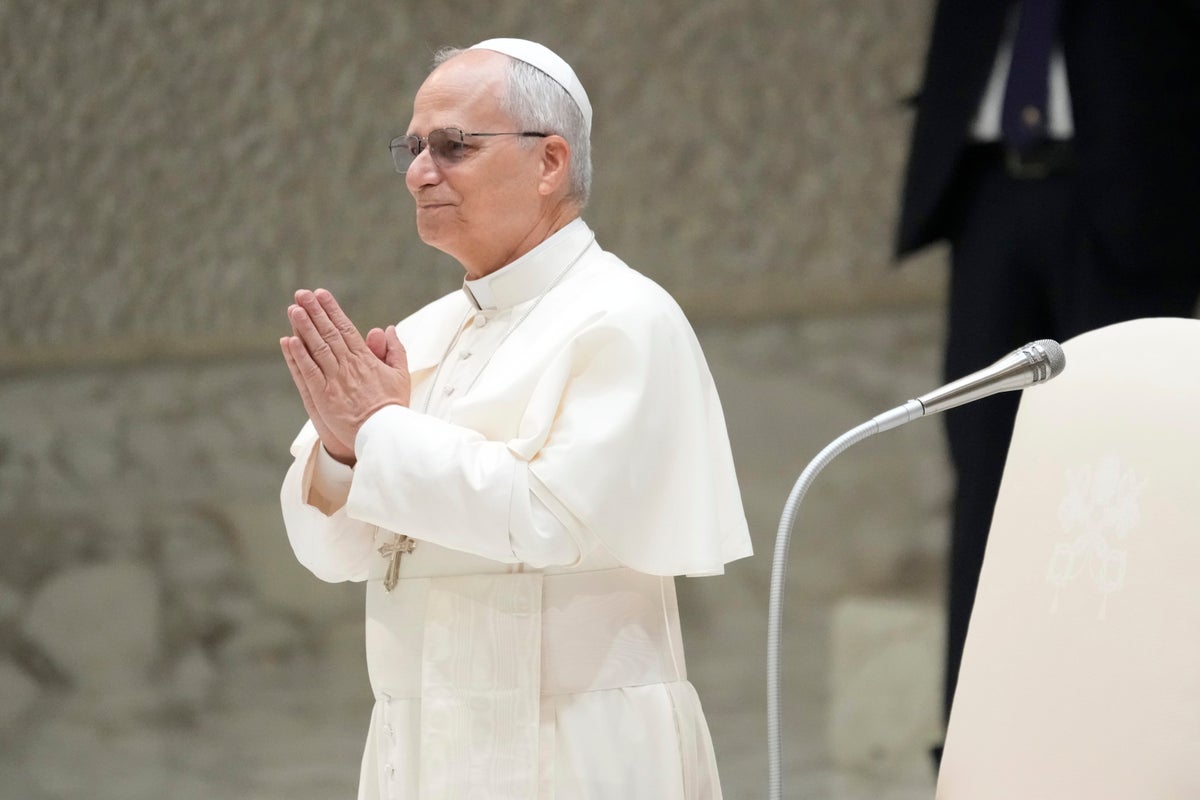
Pope Leo XIV strongly affirmed the rights of the weakest against the ambitions of the powerful during an audience Saturday with refugees from Chagos, a contested Indian Ocean archipelago that is home to a strategic U.S.-U.K. military base.
History's first American pope insisted on the right of the Chagossian people to return to their homes and hailed a recent U.K.-Mauritius treaty over the archipelago's future as symbolically important on the international stage.
Leo met with a delegation of refugees from Chagos, some 2,000 of whom who were evicted from their homes by Britain in the 1960s and 1970s so the U.S. could build a naval and bomber base on the largest of the islands, Diego Garcia.
Displaced islanders fought for years in U.K. courts for the right to go home. In May, Britain and Mauritius signed a treaty to hand sovereignty over the islands to Mauritius while still ensuring the future of the base.
Leo told the refugees he was “delighted” that the treaty had been reached, saying it represented a “significant victory” in their long battle to “repair a grave injustice. He praised in particular the role of the Chagossian women in peacefully asserting their rights to go home.
“The renewed prospect of your return to your native archipelago is an encouraging sign and a powerful symbol on the international stage: all peoples, even the smallest and weakest, must be respected by the powerful in their identity and rights, in particular the right to live on their land; and no one can force them into exile,” Leo said in French.
He said he hoped that Mauritian authorities will commit to ensuring their return, and pledged the help of the local Catholic Church.
Under the agreement, the U.K. will pay Mauritius an average of 101 million pounds ($136 million) a year to lease back the base for at least 99 years. It establishes a trust fund to benefit the Chagossians and says “Mauritius is free to implement a program of resettlement” on the islands other than Diego Garcia. But it does not require the residents to be resettled, and some displaced islanders fear it will be even harder to return to their place of birth after Mauritius takes control.
Mauritius had long contested Britain’s claim to the archipelago, and the United Nations and its top court had urged Britain to return the Chagos to Mauritius, around 2,100 kilometers (1,250 miles) southwest of the islands.
In a non-binding 2019 opinion, the International Court of Justice ruled that the U.K. had unlawfully carved up Mauritius when it agreed to end colonial rule in the late 1960s.
Pope Francis visited Mauritius in 2019 and met with a group of Chagossians in the Vatican in 2023. Francis told reporters en route home from Mauritius in 2019 that Britain should obey the U.N. and return the islands to Mauritius.
___
Associated Press religion coverage receives support through the AP’s collaboration with The Conversation US, with funding from Lilly Endowment Inc. The AP is solely responsible for this content.
HHS moves to strip thousands of federal health workers of union rights
Migrants to Iowa strike different portraits where 'American Gothic' was created
Being Muslim and American in the nation's heartland
Shower gel advert banned over racial stereotype
New Israeli strikes around Gaza kill 25 as famine announcement raises pressure
Asylum hotel protests latest: Fresh wave of anti-migrant protests expected across UK







